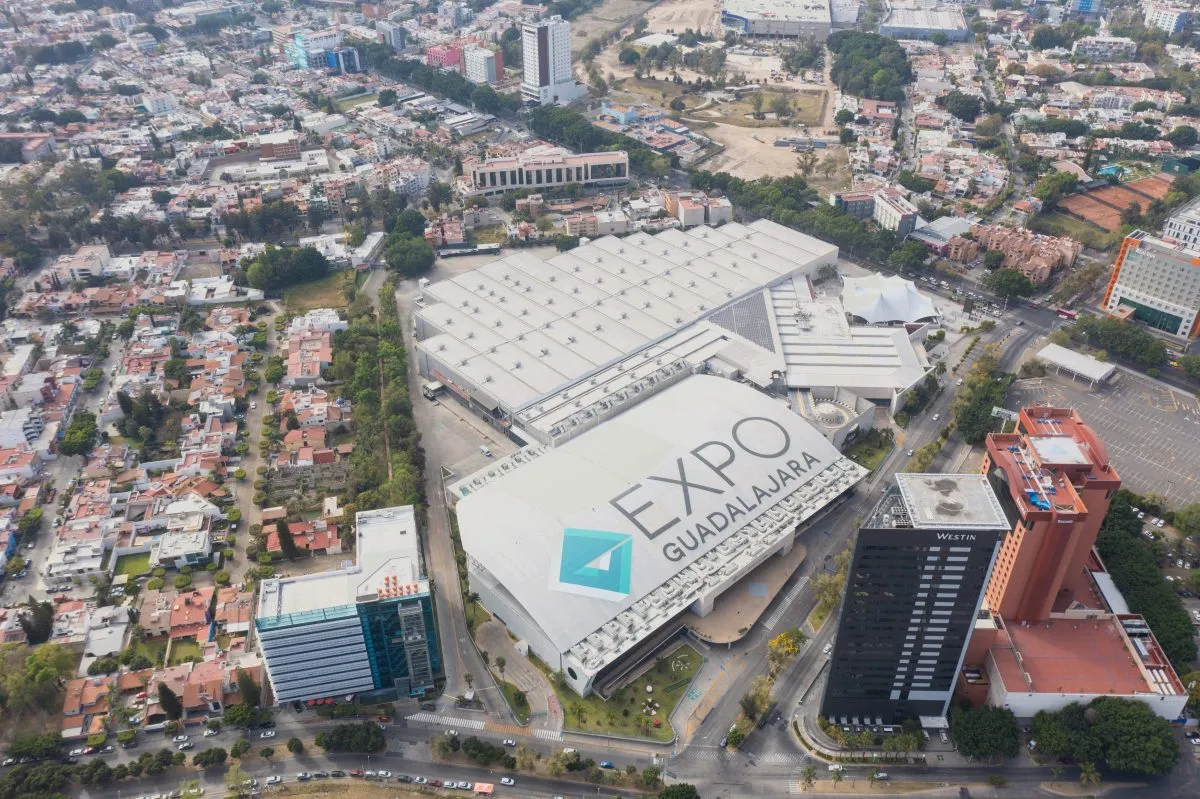37 Virtual Event Ideas for Your Next Online Event

Skift Take
Virtual engagement has been one of the biggest struggles for event professionals over the past two years, and as the industry moves increasingly towards a mix of in-person and online options, it’s essential to keep things fresh and exciting. It’s no long just about distinguishing virtual events from basic webinars, but also about ensuring that remote participants experience the same level of quality as onsite attendees — if the online experience delivers enough value, they might even decide to attend in person next time.
It’s possible to host successful, profitable virtual events, and being able to do so is becoming increasingly important as event organizers look to capitalize on remote connectivity with hybrid strategies and year-round event communities. With this in mind, here are 37 ideas for virtual events to take inspiration from when planning your next online event.
Fun Virtual Event Ideas
1. Real-Time Illustrations During Sessions
Bringing artists on board to create real-time illustrations — known as digital live scribing — is a great way to engage your audience with a unique type of content.
These talented illustrators create artwork live as panel discussions go on, providing a graphical representation of the speakers and takeaways that are entertaining, informative, and most importantly, widely shareable/postable. These illustrations can also be used in any future marketing materials.
2. Live Games or Competitions
As part of Salesforce’s World Tour Sydney Reimagined virtual event, they implemented a live "battle of the apps" competition between exhibitors — complete with audience voting — called AppExchange Demo Jam.
During this session, Salesforce AppExchange partners were given three minutes each to do a live demo demonstrating their apps. The audience was then asked to vote for their favorite, and the winner was announced on Twitter the next day.
Featuring sponsors and exhibitors through this kind of competition is a creative way to provide engaging demos while also getting the audience involved. Plus, this kind of activity will have people checking back to and engaging with the event's social media pages to see who won.
3. Virtual Concert
Just because you've brought your event online doesn't mean that you need to forego entertainment. Certain virtual event entertainment opportunities, such as musical performances, can translate very well to virtual events.
Skift Meetings has integrated musical guests into several of our events, which adds a fun element and helps keep the audience engaged. There's always the possibility that your audience will be distracted by other online entertainment, so incorporating a performance of some sort is a nice way to bring entertainment directly to them. Just like every other part of the industry over the past two years, many event entertainment companies have incorporated virtual options into their line of services and can assist with bringing different types of entertainment to your online event.
4. Health and Wellbeing Activities
Many people have been struggling with physical and mental health over the past two years of the pandemic, and incorporating these types of wellness activities into your event is a good way to switch things up and deliver unexpected value to attendees.
Depending on the format of your event, you could organize a short workout or meditation break in between sessions, or have a separate stream for these kinds of activities that attendees can tune into throughout the event for a change of pace. For our Event Trends Summit virtual event, we included a fun workout break to get everyone moving, which was a big hit with attendees!
5. Build Unique Immersive Environments
The 2021 SBC Digital Summit took the virtual concept one step further by designing their virtual space based on a physical conference center. For example, the Networking Lounge feature looked like an actual lounge with chat windows that attendees could interact with.
Although not quite VR, these environments allowed attendees to enjoy familiar aspects of event spaces through the virtual format instead of just clicking through screens and videos that all look the same. Using design elements to give your virtual event a unique look and feel will help set your it apart and serve to distinguish various spaces within the event platform as well.
6. Attract Star Talent
If content is King, delivery is Queen. There’s so much more to consider in virtual events, but especially for very content heavy events, the delivery needs to be an 11 out of 10.
Get star hosts, moderators, and speakers that can own the virtual setting and encourage engagement throughout the event. WW (formerly Weight Watchers) partnered with Oprah Winfrey last year to deliver a four-part virtual event series titled, Your Life in Focus: Be The Love You Need. One advantage of virtual events is that speakers can tune in from anywhere, so it's often easier to land big names remotely. Do your research to optimize who is delivering your content and how to energize the audience and create an exciting atmosphere.
Virtual Social Event Ideas
7. Cooking or Cocktail Class
Virtual cooking or cocktail classes are fun options for a social event. All you need to do is find a cook or mixologist, and have everyone join in from their kitchens. Even as the pandemic wanes, some people are still wary of socializing like they used to. This kind of activity can also be a great way to bring remote teams together. Even when social distancing is no longer a worry, travel may still not be practical for every social get-together.
By providing a cooking or mixology class, you can give attendees a chance to socialize and bond while allowing them to learn some new skills, all from the comfort of their home. Consider sending kits in advance so that participants will have everything they need for the class, or at the very least, provide a list of ingredients for them to prepare.
8. Virtual Trivia Night
Trivia is a quintessential game night option, and it's relatively easy to do online. A little healthy competition is always fun, and people love showing off their random knowledge. Come up with a theme to set the stage for the event, and in order to help build excitement around it, divide participants into teams ahead of time so they know who they'll be playing with — and against.
If you're new to virtual events, there are professional services that organize online trivia games and are therefore experienced at hosting the game and energizing attendees.

9. Online Murder Mystery
This is a digital take on the classic murder mystery dinner party, where guests attend as different characters and must work to reveal the murderer among them. This activity is not only a fun game, but it also forces players to work together, so it can be ideal for team building.
Several companies now run virtual murder mysteries and can help when it comes to planning and running this type of event, as it can be quite complex. Some even take place over several months, which can be a great way to keep employees connected during long stretches of remote work.
10. Team Movie Night
Get everyone together for a movie night by having people vote on a selection of movies and watch it at the same time, even if they're not physically being together. Going to the movies is another activity that was made difficult, if not impossible, by the pandemic, but these limitations forced us to find creative alternatives — and now more and more people are realizing that they don't always have to leave the house for a fun movie night with friends or coworkers. This kind of social activity can even be a nice gesture if your organization has an in-person event planned, but some would-be participants test positive for Covid at the last minute.
Have everyone join a conference call from which you'll be streaming the movie, or simply have everyone start at the same time and join a group chat to discuss as they watch.
Virtual Fundraising Event Ideas
11. Hashtag Donation
Use this idea to show that all donations matter, regardless of size. This is a virtual event where you encourage participants to join you in giving something up and donating that amount to your cause instead. For instance, a daily can of soda is $.50. They can then give that money to your cause and use a hashtag to challenge others to do the same (though depending on the processing fees and your target audience, you may want to aim higher — a latte, perhaps).
This works because it’s virtual and a challenge. It’s difficult to ignore when someone calls you out. Use an easy mobile app to encourage people to give and make sure you share all of the mentions of people doing so on your behalf.
12. Head Shaves and Other Dares
YouTubers use this method all the time. Gives us votes (or money, in this case), and you can watch us do something crazy. This is a great option for a virtual fundraiser since people are fascinated by others who will do something wild in support of a good cause, and it's easy to stream the dares online for people to watch.
Get creative with who you’ll have to do what, and make sure everyone is truly comfortable with the plan ahead of time. People with name recognition can be particularly effective at drawing attention. In addition, think about the audience and what they’d want to see — a head shave might not be as effective as a food dare.
13. Virtual Activity-a-Thon
Marathons and runs are popular fundraising events, but if you limit participation a single location, your reach will be limited. With a little ingenuity, the concept of a fundraising run (or walk-a-thon) can be translated to virtual. All kinds of home-based athletic activities are conducive to the same spirit. Try a home-based yogathon. A mindful meditatathon. You can even use an online portal to track group activities (like a traditional marathon run) in a series of satellite locations.
You can also simply have participants complete the challenge on their own and donate money based on how much they've run or walked.
Not only does this help your organization, but it's also a way to get people moving and — hopefully — out enjoying the great outdoors. Ask participants to share photos of themselves running or walking on social media to further build awareness around the cause and get others involved.
14. Social Media Challenge
Social media challenges, especially on platforms like TikTok and Instagram, can be incredibly effective when it comes to fundraising and building awareness. Most importantly, they can be done virtually. Think of a fun challenge that you can encourage supporters to take part in and share with others, similar to the ice bucket challenge that went viral and raised money for ALS.
Younger audiences spend a lot of time on social channels and love participating in challenges that they can do or share with their friends. Leverage this to get the word out about your cause. Make sure you have a clear donation page to direct people to and establish a dedicated hashtag.
15. Virtual Gala
Galas are another common fundraising idea, and they can still work as virtual events. Invite guests to join for remarks from your organization and a keynote presentation while sharing a meal (virtually). This is a welcome excuse for attendees to get dressed up, even if they're not leaving the house, and contribute to your cause.
If possible, try to deliver a treat or a bottle of wine to attendees beforehand for them to enjoy during the event. You can also hold activities online that you normally would at your gala, such as virtual auctions or raffles.
16. Video Game Challenge
Host an online video game tournament with an entry fee, and split the pot with the winner. Video games are at the center of a billion-dollar industry — there are even some colleges that are creating eSports teams. Casual and hardcore gamers with disposable, video game-buying incomes are a largely under-tapped charitable giving market.
Since video games inherently take place online, they're perfect to leverage for a virtual fundraiser. Use a game that fits your audience or ask people or sponsors to provide others to play.
Virtual Networking Event Ideas
17. AI-Generated Connection Recommendations
Virtual networking is one of the most difficult aspects to get right during online events. AI-generated recommendations for who to connect with based on common interests or experiences can be a very useful feature to have in order to make sure that attendees are connecting and networking virtually.
People can't simply run into each other online the way they can at a physical event, so prompting them with suggestions will help keep them engaged and ensure they get the most out of the event. Many virtual event platforms now offer this feature, so keep an eye out for it when considering your options.
18. Speed Networking
Like speed dating, speed networking allows attendees to meet with each other for a short amount of time in order to make connections. Attendees are paired off in private virtual rooms to begin a conversation, then are rotated out to ensure they can make as many connections as possible.
This allows attendees to easily meet people at an online event and has the added benefit of being quick — and therefore more engaging. Simply set a time for attendees to join the activity and enable them to connect with each other or share contact information during their conversations.
Best results use a platform that allows attendees to follow up with one another and schedule longer meetings if they feel it would be productive.
19. Birds of a Feather Breakout Sessions
One of the most effective virtual networking ideas is birds of a feather sessions, which are targeted breakout sessions that allow attendees to meet and discuss a particular topic. These are particularly valuable for virtual events as they facilitate connections between like-minded individuals who likely wouldn't have ended up meeting otherwise.
Birds of a feather sessions can be on any topic that makes sense based on your event and can also include speakers. It's also a good idea to limit attendance to ensure a more intimate gathering. A fun bonus could be inviting experts on particular topics or themes to facilitate discussion.
20. Gamify Connections
Incorporating gamification is a great way to engage attendees digitally — particularly when it comes to networking. Gamification helps encourage audience interaction and also makes the event more fun for attendees.
Award points for certain actions such as making a certain number of connections or attending networking sessions. Consider also including prizes or perks for those who rack up the most points to add an extra element of competition and motivation.

21. Pre-Event Chat Rooms
If your event platform includes any type of chat or social feed function, consider enabling it before the event so that attendees can begin networking and introducing themselves. Part of the value of virtual platforms is that they can work to engage attendees not just during the event, but before and after as well.
By opening communication channels between attendees before the event actually starts, you can begin to build a community around the event and make people feel more comfortable with the ecosystem and their peers before it goes live.
22. Audio-Only Discussions
Audio-only social networks or audio-first events are on the rise because people have Zoom fatigue. The amount of effort that’s required for us to participate in Zoom is a disadvantage for the format. Audio-first apps facilitate spontaneous networking as they allow people to have conversations while they’re walking the dog or taking care of the kids. It’s happening in an ambient way.
Imagine a virtual event running for five days with scattered keynotes throughout, but the audio rooms are open all the time for people to have chats. It’s a lower-cost and easier way to get people engaged.
Virtual Event Sponsorship Ideas
23. Branded Breakouts and Break Areas
Depending on your platform's capabilities, you could offer sponsors their own dedicated live-stream feeds for value-based breakouts or for informal chats between sessions, where attendees would have the opportunity to engage with them.
These dedicated streams could also be used for break areas where networking can take place or to feature sponsored entertainment. Think about the different rooms and activities you would have if you were planning a normal live event, and try to incorporate as much as you can into the online version. Including several different streams is a great way to engage attendees by giving them options while also providing more advertising opportunities for sponsors.
24. Sell Banner and Pop-Up Ad Space on Your Live Stream
Your event’s live stream can also be monetized through ad space that you can sell to sponsors. If your platform allows for them, banner and pop-up ads are a great way to incorporate additional branding opportunities for sponsors.
You may decide to have banners appear on the screen during presentations to highlight a certain sponsor, while pop-ups are ideal for between sessions since they're more disruptive.
Use them to provide links to the sponsor's website so attendees can find further information, since ad real-estate on pop-ups and banners tends to be limited.
25. Add Sponsorship to Event Apps
Event apps are increasingly vital parts of live events, and they can be used to engage remote attendees just as (if not more) effectively since the attendees' entire attention will be on their screens. Apps are great to include in sponsorship packages because they offer many opportunities for sponsor branding and messages.
Within the app, incorporate branded banners, pop-up ads or sponsored messages, and logos on different screens. If it makes sense for your event format, you can also offer a few sponsored push notifications on the app that remind attendees about sponsored sessions, or about a special sponsored offer. But be sure to use these sparingly or they'll lose their value.
26. Brand Transitions Between Speakers or Slides
When transitioning between slides, speakers, or even sessions, don't waste the opportunity to include sponsored branding. During presentations, you could add branded slides with logos, and if the sponsor is also a speaker, be sure to also include a headshot and sales contact.
Put up full screen ads thanking your sponsors during breaks, and for intermissions, consider rotating between several ads.
In general, keep text to a minimum and emphasize value — product images are always a good bet. In addition to the content of the slide that you'll be including, be sure to also negotiate the amount of time that it will be up for.
27. Get Sponsored Event Games to Boost Engagement
Tying your sponsorship to engagement is a great way to make sure people are paying attention to the brand and getting maximum exposure. That’s why sponsored games, raffles, drives, and collaborative activities work so well.
Event apps can greatly help with this as many include gamification features that can be used in a virtual environment. These can include icebreaker challenges in which points are allotted for connections made or scavenger hunts and quizzes in which points are allotted for finding information (among others).
28. Partner with Sponsors for CSR Initiatives
Whether you have a long history of fostering CSR initiatives or have shied away from them in the past, there is no better time to use cause marketing to partner with a sponsor and create a message that resonates with your audience. Use the event to promote positive social change with sponsorship dollars.
For example, instead of sponsoring the planting of trees, you could suggest that your sponsor donate a certain number of masks to a local hospital or support food banks or accommodations for the most vulnerable groups. Look for relevant organizations that you can donate to and encourage attendees to get involved as well.
Virtual Swag Bag Ideas
29. Offer Sponsored Virtual Event Bags
There exists such a thing as virtual swag bags, and now is a great time to explore the offerings. One idea is to give your sponsors the opportunity to curate what goes into attendees' swag bags, be it coupons or vouchers, a free trial for a software, or an online course. The bag would then be shared directly with your attendees for them to access via email, social media, or the event app, either before, during, or following the event.
30. Host a Giveaway
Giveaways are always a good way to increase engagement with attendees and can be a fun addition to a virtual event. Although it's not quite as simple as handing an attendee their prize, there are virtual goodies you can offer, and there's still the option of mailing physical incentives to attendees following the event.
For example, have participants share something about the event on social media using the dedicated event hashtag, or complete certain actions during the event. Using criteria like these helps increase brand awareness and also works to engage attendees, so it's a win for everyone.
31. Surprise Attendees with Home Delivery
Even for an in-person event, we send pre-event emails, but we have onsite reminders for guests to get the most out of their journey. As we don’t have that currently, we need guests to have everything they need to maximize their experience.
Try sending guest communication kits to enhance the senses — something virtual events just can’t achieve alone. You can send event information and swag, but also items such as
aromatherapy roller balls to invoke certain feelings, snacks, or laptop headphones. Delivering these directly is key and elevates the overall experience, heightening engagement with your event and the alignment with the brand.

32. Incentivize Registrations With Swag
Offering swag to people who register for your event can help boost early registrations for and interest in your event. Everyone loves free stuff, and the promise of a gift can help prompt people to register for your event as well as share the opportunity with their network.
Advertise your swag and specify that only a certain number of people will receive it to encourage early registrations. This approach will also help create buzz for the event as you begin to market it.
33. Post-Event Thank You Gift
In addition to providing swag before and/or during your event, you may want to consider sending a thank you gift following the event. This is a nice way to acknowledge attendees and ensure that your brand stays top-of-mind a little while longer.
A post-event swag bag can include a thank you note, a link to download on-demand content, branded materials, and any information on upcoming events, including a discount if applicable.
Best Virtual Events
34. Provide High-Production Value Content On Demand
One of the best virtual event examples is Adobe's Summit, which was one of the first major virtual events at the beginning of the pandemic. Last year, Adobe decided to forego live streams for their Summit and went the prerecorded route instead. SEO firm Moz opted to do the same for their 2021 conference, although their on-demand content was monetized.
What prerecorded sessions may lack in real-time engagement they make up for in production value, as they benefit from the ability to be edited or enhanced. This can greatly improve certain speakers' performances. They also eliminate many common challenges of virtual events, such as connectivity issues during the event or people getting bored and tuning out of the live stream.
35. Create Exclusive Experiences
Exclusive, FOMO-inducing experiences are generally associated with physical events, but Rihanna's new Fenty Skin brand achieved a similar result with its launch over the summer. The launch consisted of a virtual house party in a high-end, immersive environment that attendees could explore and interact in.
This innovative approach made attendees feel like they were at an exclusive, high-end launch party while also learning more about the brand and its products. There was even a virtual dance floor, live chat, and bouncer to add to the experience.
36. Leverage Virtual Venues
Even if you don't have access to a dedicated virtual event platform, you can still create a memorable event environment using a virtual event studio to help with the production side of things. For their annual internal REEMEA conference, LEGO was limited to using Microsoft Teams for security purposes.
However, using a virtual production studio, they were able to create a 3D virtual LEGO studio that served as a backdrop for the sessions and allowed remote speakers to appear together onscreen. Virtual venues can be used to create similar immersive environments complete with lighting and high-quality video for all kinds of events.
37. Use Backdrops to Support the Event Theme and Build Excitement
Salesforce’s World Tour Sydney Reimagined virtual event prioritized backdrops for their sessions, which were all notably in line with the event's "world tour" theme — whether it was a beach, the mountains, or a cityscape.
A professional look and feel adds to an event's engagement potential and helps improve the virtual attendee experience by making your event look cohesive and consistent from start to finish. Ideally, every speaker would be provided with an image to set as their background, which can be used as a branding opportunity or a way to further incorporate the event theme.
If you bring your speakers together on a live stage, you have even more control over the backdrop. When it comes to virtual events, thinking outside the box can mean moving beyond a webcam grid of talking heads. A full-body shot of speakers moving across a stage can go a long way to capturing the energy and excitement of a live experience.

IN CONCLUSION
Virtual events are here to stay, and new concepts are constantly being tested and improved upon. Use these ideas as a starting point, but don't be afraid to be creative and experiment, since we've only scratched the surface.




